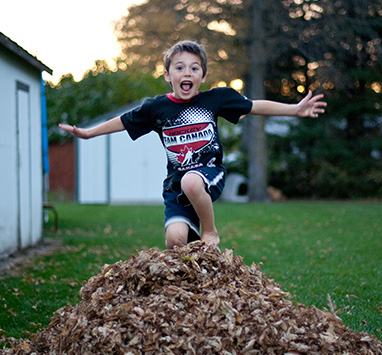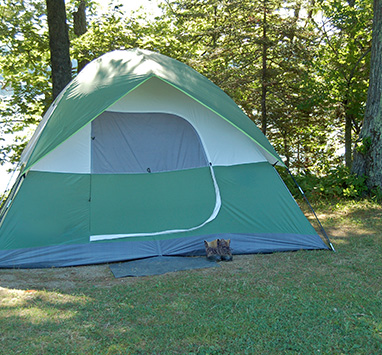Prepare/Aware
Prepare at Home
At home, an emergency kit that includes medicines, essential supplies and season specific items should be ready to go at any time and sustain your household members for at least three days. Taking precautions to prevent and prepare for emergencies can limit the effects it will have on our daily lives.
Communicate and practice your safety/evacuation plan with household members before an emergency. Familiarity with your family’s emergency plan will help ensure everyone is aware of what to do when an emergency occurs. The plan should include information on how to remain in contact when it is time to leave.
- Keep a supply of essentials (food, water and medication) and some basic emergency supplies (radio, flashlight, and toiletries) to last for at least a 72 hour period.
Visit the Get Prepared website for additional information on how to pack a preparedness kit and complete an Emergency Plan for your household.
Don’t forget your pets! Have a plan in place for your pets in the event on an emergency or evacuation. Emergency Preparedness for Pets (City of Winnipeg)
Prepare – Farm & Business
At work, emergency plans should include procedures to see the business through most emergencies, identify how specific hazards could impact your business and plan to ensure the safety of your employees and clients. Preparedness and mitigation are essential to business continuity.
Commercial or farm operations should have a preparedness and mitigation plan in place will make sure the safety of staff and clients, impacts are minimized and everyone can get back to work sooner.
Hazard Specific Emergencies
Flood
The most severe and widespread emergencies in Manitoba have been floods. Floods in 1950, 1997 and 2011 resulted in extensive property damage, evacuations, and emergency operations to protect people and communities. Overland flooding is a regular annual occurrence in many areas of Manitoba and has resulted in a significant investment in mitigation and planning.
Pre-flood - Assess your home and property for previous water damage, low-lying areas and access routes prone to flood waters to see how you can mitigate the risk before an emergency happens. Consider what can be done to reduce damages and protect your home and property. Communicate and practice an evacuation plan for your home, farm and business if a severe flood occurs. While municipal and provincial assistance will be available in such cases, planning ahead is valuable and necessary.
During a flood – Monitor conditions and follow the instructions of local officials.
| Function | Partner | Contact Information | Links |
|---|---|---|---|
| Preparedness, Response Mitigation, Recovery Planning and Operations | Local Authority |
| |
| Flood forecasting and information | Hydrological Forecast Centre | Manitoba Flood Information | |
| Flood resources requests | Manitoba EMO | General information – Emergency reporting | |
| Preparedness Information | PSC | www.getprepared.gc.ca/index-en.aspx |
Severe Storms (Thunderstorms, tornados, blizzards, etc)
Severe weather, in any season, has the potential to close roads and facilities, damage our utilities, and severely damage property. Severe weather, including blizzards, tornadoes, heavy rain, windstorms, hail, and thunderstorms, can present a serious threat to life and property.
Prepare for a severe weather as the seasons change; know the risks for your area, monitor current and forecast weather conditions. The Alert Ready system will issue severe weather warnings to Manitobans as they occur.
Warning Signs of a Tornado:
- Severe thunderstorms with frequent thunder and lightning
- an extremely dark sky sometimes highlighted with green or yellow clouds
- a rumbling sound, such as a fright train or a whistling sound similar to a jet aircraft
- a funnel cloud at the rear of a thunder cloud often behind a curtain of heavy rain or hail
What to do during a tornado:
If you are near a building:
- Listen to your radio during severe thunderstorms.
- If a Tornado Warning has been issued take cover immediately.
- Go to the basement or take shelter in a small interior ground floor room, closet or hallway.
- Protect yourself by sitting under a heavy table or desk.
- Stay away from windows and outside wall and doors.
- Do not use elevators.
- Avoid large halls, churches, arenas, ect, their roofs are more likely to collapase.
- Stay close to the ground, protect your head from flying debris.
If you are driving:
- If you are driving try to get to a nearby shelter - drive away from the tornado at a right angle.
- Do not get caught in a car or mobile home - take shelter elsewhere. If no shelter is available, life face down in the ditch or culvert away from the vehicle or mobile home.
- If a tornado seems to be standing still, it is either travelling away from you or heading straight for you.
- Stay close to the ground, protect your head and hide from flying debris.
| Function | Partner | Contact Information | Links |
|---|---|---|---|
| Preparedness, Response Mitigation, Recovery Planning and Operations | Local Authority |
| |
| Severe weather forecasting and information | EC Weather Conditions/Forecast EC Weather Radio Info MB Severe Weather Information |
| Environment Canada Weather Conditions and Forecast Environment Canada Manitoba Severe Weather website |
| Alert Ready | ECCC | ||
| Power outages/damage | Manitoba Hydro | ||
| Local Authority support and reporting | EMO | General information – Emergency reporting | |
| Preparedness Information | PSC | www.getprepared.gc.ca/index-en.aspx |
Power Failures
The failure of any utility could result in severe disruptions, particularly during the winter months. While there have been investments to protect these systems and extensive planning to manage emergencies, the unpredictable nature of severe weather and wildfires, mean failures are still inevitable.
| Function | Partner | Contact Information | Links |
|---|---|---|---|
| Preparedness, Response Mitigation, Recovery Planning and Operations | Local Authority |
| |
| Outage response and preparedness communications | Manitoba Hydro | Emergency Preparedness Handbook | |
| Extended Outage Coordination | EMO | General information – Emergency reporting | |
| Preparedness Information | PSC | www.getprepared.gc.ca/index-en.aspx |
Be Prepared.
Emergency Supplies
- Ensure to have home emergency supplies to sustain your family for up to 14 days. Non perishable goods and water. Aim for at least 4 liters per person per day.
- Choose a location for your emergency supplies that it is easy for anyone in your family to find in the dark.
- Consider having several working flashlights and extra batteries.
- Keep your mobile device charged and back up charging devices available.
- Avoid opening the freezer and fridge to preserve food.
Electrical Safety
- Unplug computers, audio, and TV to avoid damage.
- Use surge protectors for sensitive electrical appliances.
- Ensure the stove and small appliances are turned off.
- Leave one light on to indicate power restoration.
- Check your home's circuit breaker if the outage is isolated.
- Turn off appliances before resetting a tripped main breaker.
- Call an electrician if the breaker continues to trip.
Fire Safety
- Use candles cautiously to avoid fire risks
- Avoid placing candles near flammable materials and never leave them unattended.
- Avoid using cooking devices for heating due to the risk of carbon monoxide.
Wildfires
Severe weather, in any season, has the potential to close roads and facilities, damage our utilities, and severely damage property. Severe weather, including blizzards, tornadoes, heavy rain, windstorms, hail, and thunderstorms, can present a serious threat to life and property.
Prepare for a severe weather as the seasons change; know the risks for your area, monitor current and forecast weather conditions. The Alert Ready system will issue severe weather warnings to Manitobans as they occur.
Wildfire season in Manitoba is typically April through September. Always be wildfire aware when the weather is warm, dry and windy. People living, working or recreating in wildland areas (grassy fields or forested areas) should be aware of the local fire danger and forecast weather to prevent igniting a wildfire and staying safe.
Human caused wildfire - Most common during the spring before green up when vegetation has very little moisture. Human caused wildfires are preventable and put people and communities unnecessarily at risk.
Lightning caused wildfires - Most common in July and August. Lightning fires can appear up to a week after the storm has passed, if the conditions are right.
Wildfire Prevention Tips:
- Know your local fire danger. Outdoor activities are safest when the fire danger is low or moderate.
- Avoid outdoor burning when it is warm, dry and windy, especially if there has not been widespread and continuous rain in the preceding days.
- Comply with any provincial or municipal burning restrictions for the area.
- Do not build fires close to homes or other property
- Build fires away from trees and dry vegetation, ensure there is an adequate fuel break and have water and a shovel near by
- Never leave a fire unattended
- Always make sure a fire is completely extinguished before leaving
Be Prepared.
Make sure your 72 hour preparedness kit is ready for sheltering in place or evacuation and review your family's emergency plan and contact information.
- Battery-operated radio, working flashlights and spare batteries
- First aid kit and essential medication
- Emergency food and water
- Children's emergency supplies (e.g. formula and diapers)
- Charge phones and pack extra phone chargers and power bank devices
- Have important documents ready
During a Wildfire Incident
If a wildfire is close-by or there is a real risk of a new wildfire impacting your home and property:
- Be prepared to evacuate all family members, including pets
- If there is time and it is safe to do so, clean and prepare the home ignition zone. Put away or move any flammables (patio furniture, potted plants, firewood, fuel) away from the home (>10m). Anywhere leaves and debris collect is where embers will collect.
- Minimize smoke inhalation in the home by closing all windows and doors. A wet towel along the window and door seams will minimize smoke.
- Keep the radio on and listen for emergency messages
- Keep phones and power bank devises fully charged
- Follow reliable sources of emergency information for your area on social media
- Pre-register for evacuation and follow directions provided by your local emergency management office
If you must evacuate:
- Take only the necessities
- Follow all instructions provided by local authorities
- Contact absent family members and let them know the evacuation information
- Confirm and follow the safe evacuation routes
- Confirm the evacuation reception center location before you leave (listen for media announcements)
- If there is time, shut off the water, gas and electricity and ensure all windows and vents are closed.
| Function | Partner | Contact Information | Links |
|---|---|---|---|
| Preparedness, Response Mitigation, Recovery Planning and Operations | Local Authority |
| |
| Wildfire response (crown land) | Manitoba Wildfire Service |
| Manitoba Wildfire Service Manitoba Wildfire Information |
| Wildfire response (municipal/First Nation boundary) | Local Fire Department |
|
|
| Wildfire response (mutual aid support & coordination) | Office of the Fire Commissioner | | |
| IEPC Coordination | EMO | ||
| Preparedness Information | PSC |
| |
| Wildfire Mitigation/Preparedness Information | MWS FireSmart Canada |
|
|
Bomb Threats and other threats of civil unrest
Bomb threats require immediate action. Take note of any important information, call 911, follow the fire evacuation plan and listen to first responder instructions.
| Function | Partner | Contact Information | Links |
|---|---|---|---|
| Emergency Response | RCMP Fire Department | 911 | |
| Preparedness, Response Mitigation, Recovery Planning and Operations | Local Authority | Your local municipal office or other local authority | |
| Preparedness Information | Get Prepared (PSC) | www.getprepared.gc.ca/index-en.aspx |
Hazardous material spills and chemical releases
Chemical releases and hazardous materials incidents can happen anywhere and at any time. The response and impacts will depend on what the material is, how much spilled, and where it spilled or released. Being familiar with some of the potentially hazardous substances near your home or office, and what actions might be required to protect yourself is a start. If you handle hazardous materials, know what should be reported and how to clean or prevent its spread until it can be remediated.
| Function | Partner | Contact Information | Links |
|---|---|---|---|
| Preparedness, Response Mitigation, Recovery Planning and Operations | Local Authority | Your local municipal office or other local authority | |
| Emergency Response | RCMP Fire Department | 911 |
|
| Environment Reporting | EERT CANUTEC |
|
|
| Preparedness Information | PSC |
|
Pandemic and other public health emergencies
While all public health emergencies are cause for concern, the current COVID-19 pandemic has highlighted the importance of pandemic preparedness and business continuity planning activities. The Government of Manitoba has developed a number of tools to guide individuals, schools, and businesses in pandemic influenza planning and response.
| Function | Partner | Contact Information | Links |
|---|---|---|---|
| Preparedness, Response Mitigation, Recovery Planning and Operations | Local Authority | Your local municipal office or other local authority | |
| Public Health guidance and Information |
|
| Province of Manitoba COVID-19 |
| Preparedness Information | Health Canada |
| Preparing for Pandemic Influenza Pandemic Influenza |
| Preparedness Information | PSC | | www.getprepared.gc.ca/index-en.aspx |




